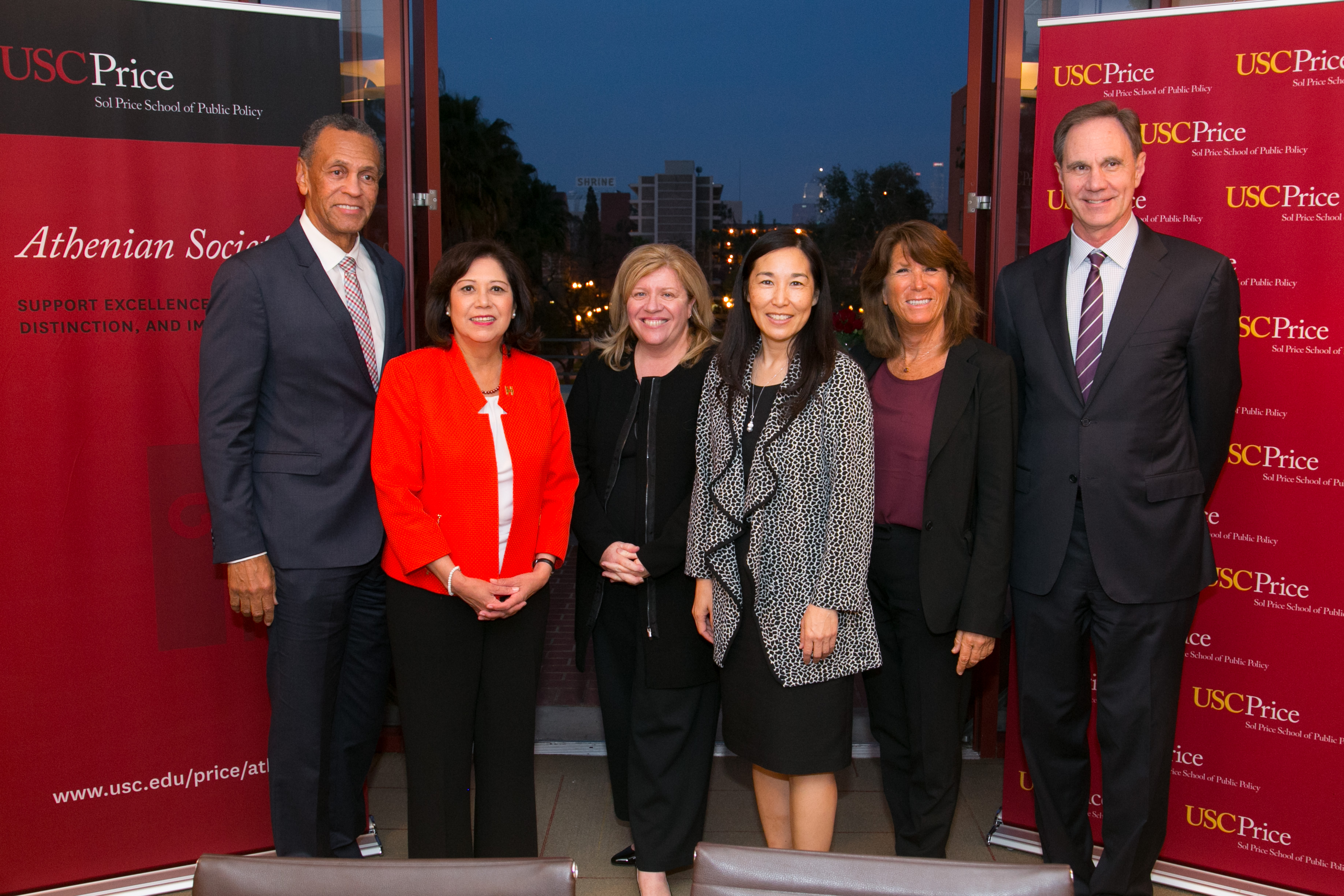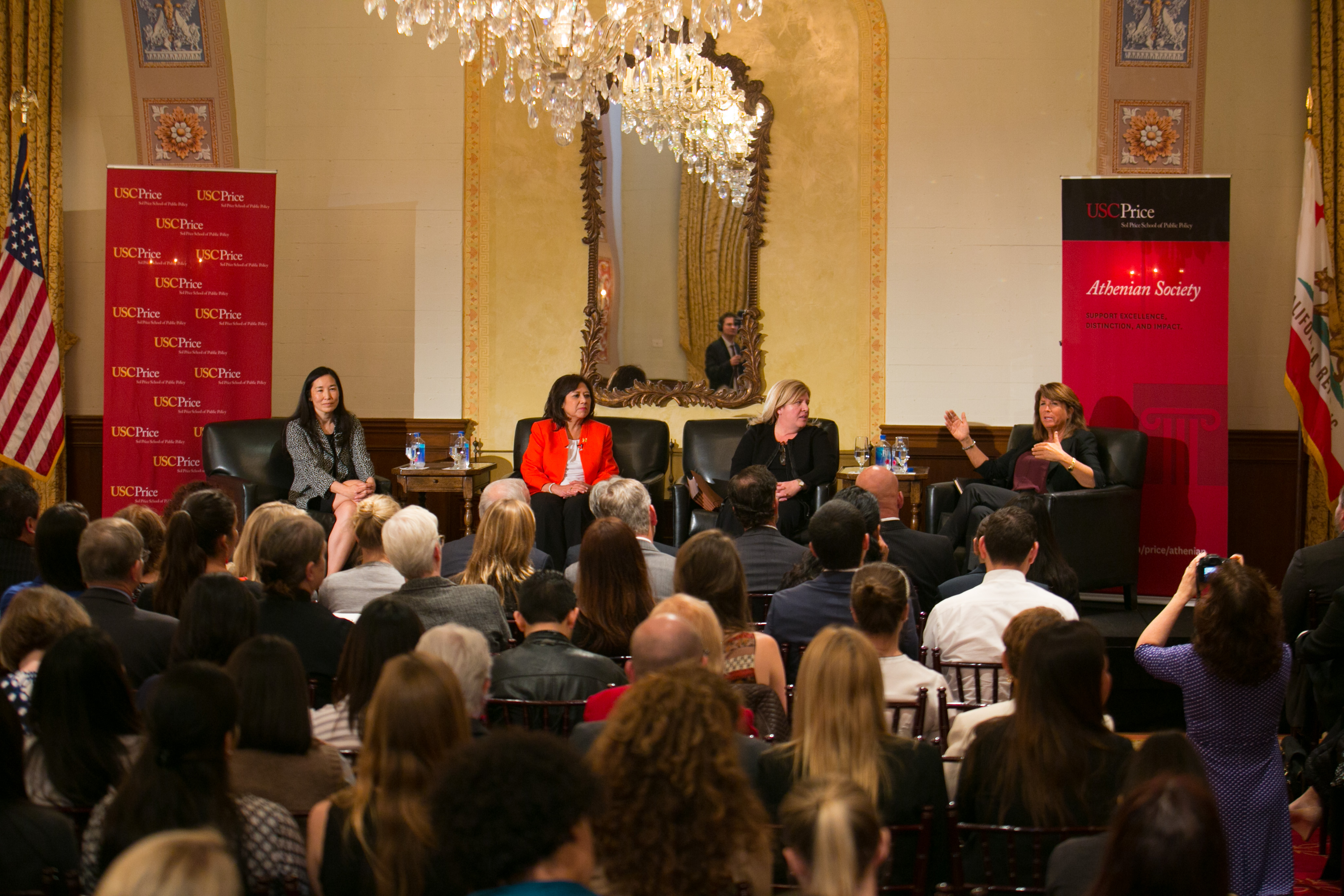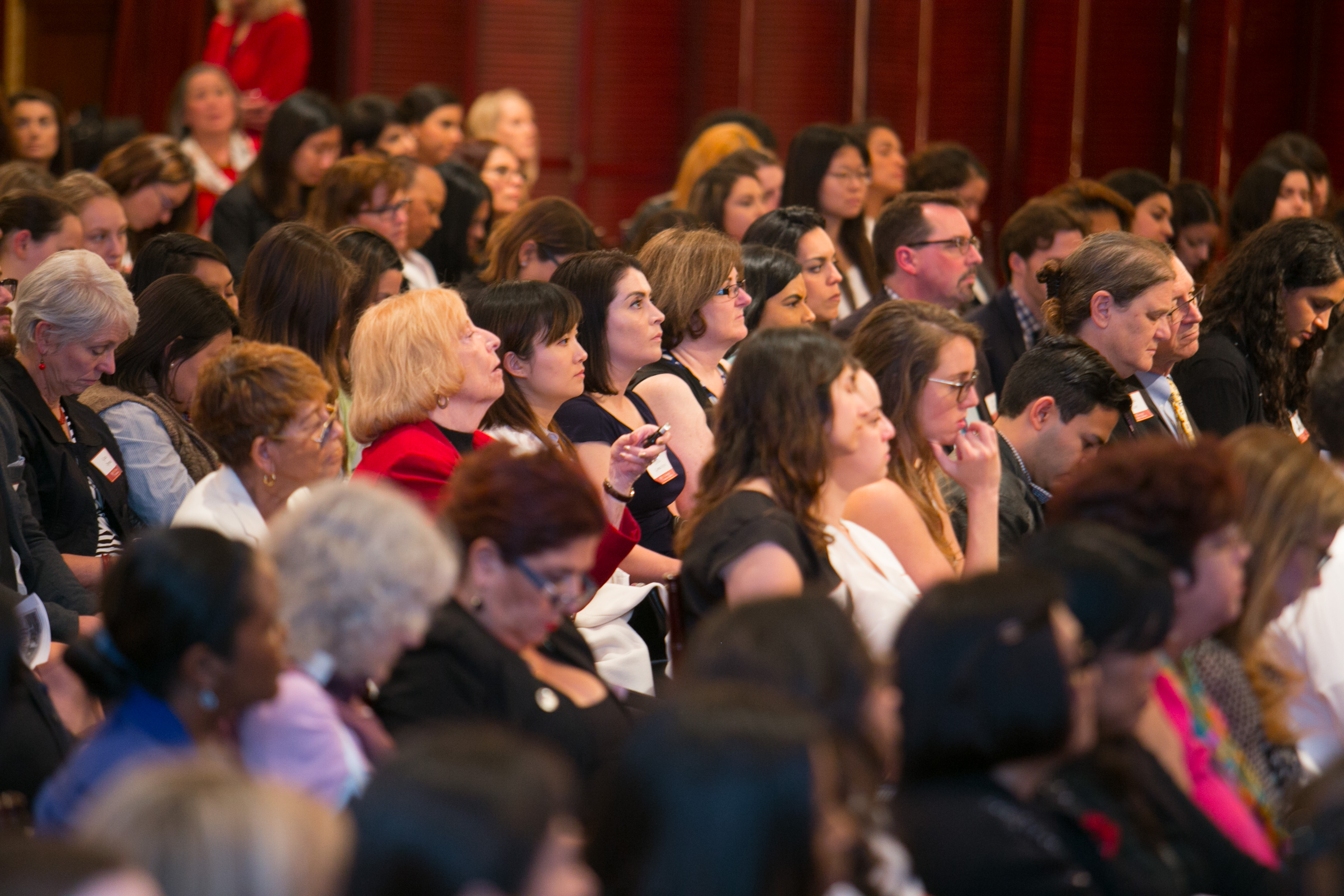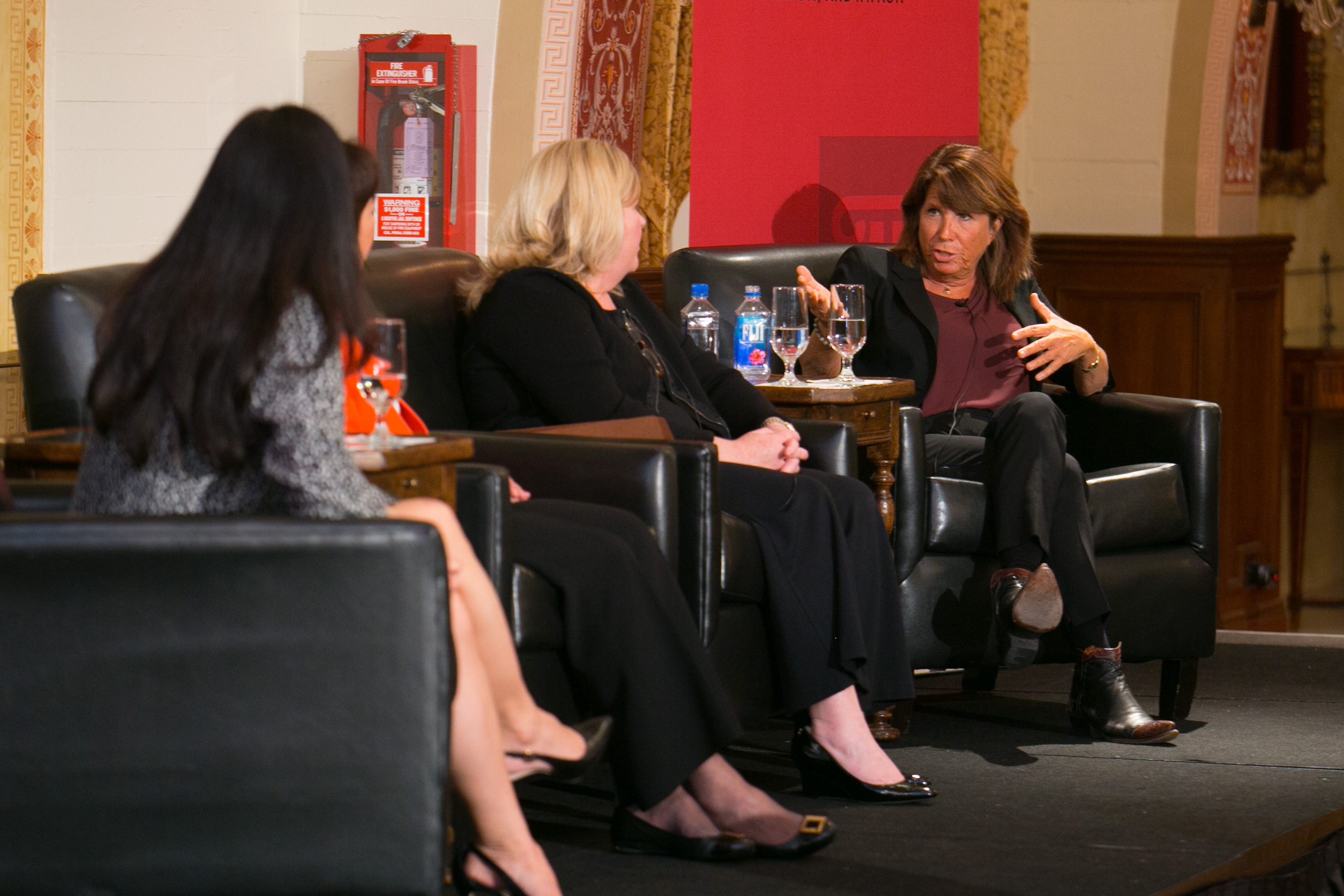By Matthew Kredell
For the first time since Los Angeles County was established in 1850, three women hold its top positions of leadership. The USC Price School of Public Policy’s Athenian Society hosted those women – L.A. County Board of Supervisors Chair Hilda Solis, CEO Sachi Hamai and County Counsel Mary Wickham – on March 2 for a Dean’s Speaker Series event highlighting the impact that female leaders have in the policy arena.
Sponsors of the event included Tesoro, GrassrootsLab, and Regatta Solutions.
USC Price Dean Jack H. Knott began the evening at Town & Gown Ballroom by noting that this year marks the 40th anniversary of when California elected Rose Ann Vuich as the first woman to serve in the State Senate. He added that the prominent position of women in Los Angeles County is not the trend statewide, citing data that found women comprise more than half of California’s population but less than 30 percent of its elected officials.
“Tonight’s panel features three women who not only constitute the county’s top leaders but who also are in the forefront of driving meaningful policy change in the L.A. area,” Knott said. “Our speakers have oversight of many critical issues encompassing business development, homelessness, housing, healthcare and an evolving criminal justice system. We have the great privilege of hearing directly from some of the most influential and impactful women in Los Angeles County, and this is a really unique opportunity to learn about their experiences and insights.”
Two of the panelists were USC Price alumni. Solis, who served as U.S. Secretary of Labor during President Obama’s first term, completed her Master of Public Administration in 1981, and Wickham earned her B.S. in Public Administration in 1986.
Bonnie Reiss, global director of the USC Schwarzenegger Institute – herself an accomplished woman leader, having served as Senior Advisor to Governor Schwarzenegger, a member of the state board of education and California Secretary of Education – moderated the panel. She established that the discussion would not only focus on their perspective as women but also on what is needed to create good governance. “These are not just brilliant, remarkable and respected women leaders,” Reiss said, “they’re brilliant, remarkable and respected leaders.”
Facing complex challenges
Reiss asked the panelists to name two essential elements for making a great American city. Hamai responded with addressing homelessness and child-care protection, Solis spoke of economic development and the environment, and Wickham highlighted diversity in and public access to government.
Hamai detailed how Los Angeles County is the largest municipal government in the nation with 10 million residents, 88 cities, more than 120 unincorporated areas and a budget of $28 billion. She also explained that about 60 percent of the county’s 3,500 executives are female, and 15 of its 36 departments headed by women.
Reiss pointed out that while the first female President of the United States could be elected this year, there has yet to be a woman elected governor of California or mayor of Los Angeles.
Solis articulated that there are countries far more oppressive than the United States that already have had women prime ministers and presidents, but added that votes shouldn’t be cast based on gender.
“When I was in my campaign, I never said, ‘I’m a woman so vote for me,’” Solis said. “No, what matters is what I bring to the table – what tenacity, what drive, what initiative – and what ideas am I encapsulating in my platform?”
The panelists agreed that the main issue is having proper representation among genders and ethnic groups that make up a community.
“The person at the top sets a tone for the organization,” Wickham said. “If that person happens to be a woman or someone who maybe hasn’t led that organization before, the organization is going to change because they are going to bring a different philosophy.”
Taking risks, breaking barriers
In addition, the panelists discussed having been supportive of each other throughout their careers. Hamai credited Solis for helping her overcome doubts that she was ready to fill the role of county CEO, and Wickham said Hamai helped do the same for her in becoming county counsel.
“As women, I don’t know if it’s just part of us but we second-guess ourselves a lot,” Hamai said. “It’s because of mentors like Hilda who give you the support and say ‘You can do it, you’ll be OK, take that risk.’ It’s about putting that belief in women to empower them that they can do the job.”
Wickham expressed that such mentoring is particularly important because women often have more barriers to seeking leadership positions.
“As women, we wear many hats — we’re caretakers, daughters, wives, mothers, all those things,” Wickham said. “So when you’re presented with an opportunity and you know this is going to take a commitment, we struggle with that. Can we balance it all? One term Supervisor Solis has used is ‘stepping up.’ I think as women, when an opportunity presents itself, if the timing is right, step up and take on the challenge.”
Student members from the Women Leading Policy, Planning and Development (WLPPD) association at USC Price were in attendance, gleaning key insights from the panel.
“I was incredibly inspired by the event,” said WLPPD president Leah Hubbard, a second-year MPA student. “Many of us in attendance were young women getting ready to graduate and begin or continue our careers. I gained invaluable advice about how to be an accessible, responsive leader, and the importance of taking initiative and being confident in the work I do.”




